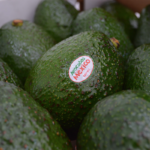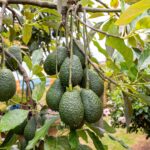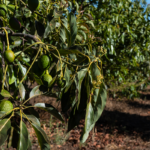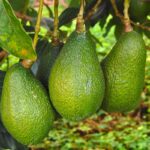Subsistence farmers in Michoacan target avocado trees amid drought

Mexico is going through a long drought with rainfall dropping to nearly half the usual amount over the last year, now avocado trees are being targetted for their water needs.
This has led desperate subsistence farmers to take direct action against commercial avocado orchards and illegal plantations, which they say require high amounts of water and are drying up water streams in the mountains.
Rivers and even whole lakes are disappearing in the agricultural hub of Michoacan, media reports show, as the drought combines with a surge in the use of water.
ABC News reports that in recent days, subsistence farmers and activists from the Michoacan town of Villa Madero organized teams to go into the mountains and rip out illegal water pumps, and breach unlicensed irrigation holding ponds.
“In the last 10 years, the streams, the springs, the rivers have been drying up and the water has been captured, mainly to be used for avocados and berries,” said local activist Julio Santoyo, one of the organizers of the effort. “There are hamlets in the lower part of the township that no longer have water.”
Other groups have gathered to breach illegal containment ponds that have been sucking up water from springs that have supplied local residents for hundreds of years.
Another resident from El Sauz, Francisco Gómez Cortés, told AP reporters that they simply don't have enough water for human consumption. He said they have been asking landowners to let the spring flow downhill for 15 years.
Protestors have been joined by the mayor of Villa Madero, who also blames outsiders for the water crisis.
"There are people who aren't from this town, who come to our township and are invading us," Mayor Froylan Alcauter Ibarra told AP reporters. "They are taking water away from the people who live downhill, and they don't realize these are the poorest people."
ABC News reported residents said they don't want to deny water entirely to the orchards and have proposed an agreement to give landowners 20 percent of the water from local streams if they allow the remaining 80 percent to keep flowing. They say they haven't gotten a response yet.
The risk of targeting avocado trees
The desperate decision to take action into their own hands could have serious consequences for citizens.
The Mexican avocado industry is infiltrated by drug cartels, who often sponsor or protect the lucrative business. A potential conflict with growers could escalate, and protestors are aware of the risk.
Activists around the area say they have suffered threats, kidnappings, and beatings in the past.
"We are running a serious risk of them killing us for protesting," Gomez Cortes said. "Out of necessity, we are doing what the government should be doing."
Local residents say growers are not only diverting water from streams, but they are paying for tanker trucks to take thousands of gallons from lakes to water the orchards.
State police are now patrolling the lake shores and detaining any truck drivers they see extracting water.
The issue of illegal avocado plantations in Mexico has caused increasing political concern in recent months. In February, U.S. Ambassador Ken Salazar held a joint press conference with Michoacán Governor Alfredo Ramírez to address the topic.
Salazar said the United States would not import fruit grown on illegal plantations that contribute to deforestation and that agencies were working on protocol to prevent their entrance to the country.
“People behind these more than 800 illegal orchards should not have the opportunity to sell these avocados in the U.S. market,” Salazar said.
This month, more than 25 organizations urged the U.S. State Department to stop avocado imports linked to deforestation in Mexico. The letter, distributed by the Center for Biological Diversity, cited concerns about lost monarch butterfly habitat, as well as threats made to local produce inspectors.













































